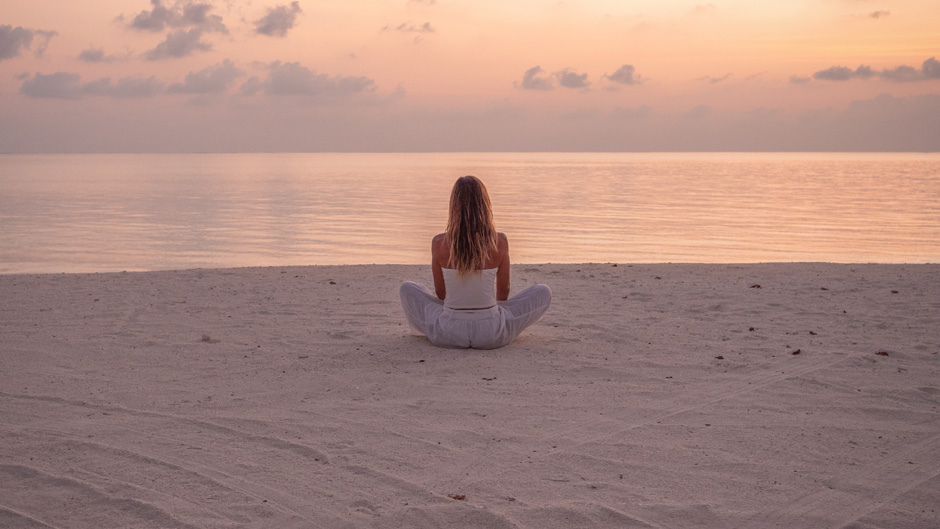Floods, droughts, wildfires, a global pandemic, a war, mounting inflation, increasing poverty, and food insecurity.
These are some of the issues affecting our world. It almost sounds like Armageddon. The images and sounds from the news can make us anxious, and for some it may lead to feelings of despair. But our body is wise.
In order to keep surviving and even thriving in troubled times we must quiet our minds, say experts. We must turn our minds inward and rely on meditation and mindfulness to keep us grounded.
Scott Rogers, lecturer at the University of Miami School of Law, director of the Mindfulness and Law Program and director of programs and training of UMindfulness, offers suggestions on how to navigate the troubled waters we are treading.
How can meditation help us in a time of crisis?
A time of crisis can be both destabilizing and energizing. When we funnel the energy in productive ways, we can be of service to others and experience a steadier state of well-being. Otherwise, the energy we feel further rocks the boat of emotional distress and confusion.
Meditation can help us experience greater emotional balance from which we can make more informed decisions about what to do. There are times to take good care of ourselves. At other times, we are experiencing a level of resilience that enables us to be of service to others in meaningful and responsible ways.
How can we tame or calm our brain so we can relax and actually meditate?
There are things we can do to establish conditions conducive to meditation. These conditions take place around and within us. With regard to external stimulation, putting aside and turning off cell phones, tablets, and computers, requesting that we not be interrupted, and finding a relaxing place to sit or lay down can be very helpful. Getting a good night’s sleep, eating well, exercising, minimizing social media, and including supportive social connections can help tone down internal agitation.
The more attentive we are to these factors the more likely we are to have an easier time meditating. Importantly, however, we can—and at times will have little choice but to—meditate with a busy mind. When we practice a particular type of meditation known as mindfulness meditation, we learn to observe things as they are and allow the moment to be as it is, which sometimes—and often at the beginning of a practice period—involves a busy mind and not feeling relaxed.
It can be challenging to select what to pay attention to, even when we know what will best serve our interests. Sometimes we keep on reading or watching or eating something that can leave us feeling anxious, sluggish, or affect our mood. Many meditation practices and, in particular, basic mindfulness meditation help us to steady our attention. In this respect they are brain training or attention training exercises. University professor Amishi Jha writes about mindfulness practices in her recently released book, “Peak Mind,” and they can be found on most apps and can go by names like focused attention or breath awareness.
Attention can fail when we are tired, stressed, hungry, or distracted. Therefore, the above suggestions like getting a good night’s sleep and eating well can enhance a period of meditation. Meditations that train attention involve focusing on an object, like the breath, the hands, a sound, candle, or even the counting of the breath.
When attention wanders, as it will, and this is detected, the meditator brings attention back to the object. While some might view this as futile, it is in fact one of the ways of training a wandering attention. It’s not that different from training a puppy. At first, she runs all over the place. But with training that is patient and kind, she settles down.
Are there exercises, foods, or anything else that can help us deal with stress?
Yes. This is such an important question as exercise and nutrition, along with sleep and supportive friends, go a long way toward helping us reduce stress. We can’t necessarily change world events and the crises that are a part of everyday life, but we can make headway on these pillars of wellness. Baby steps go a long way—and are the necessary first steps toward getting anywhere at all. If one wants to better attend to these pillars of wellness, meditation can help that happen. And attending to these pillars can make it a little easier to meditate.
Visit UMindfulness for more information on current offerings and events.

